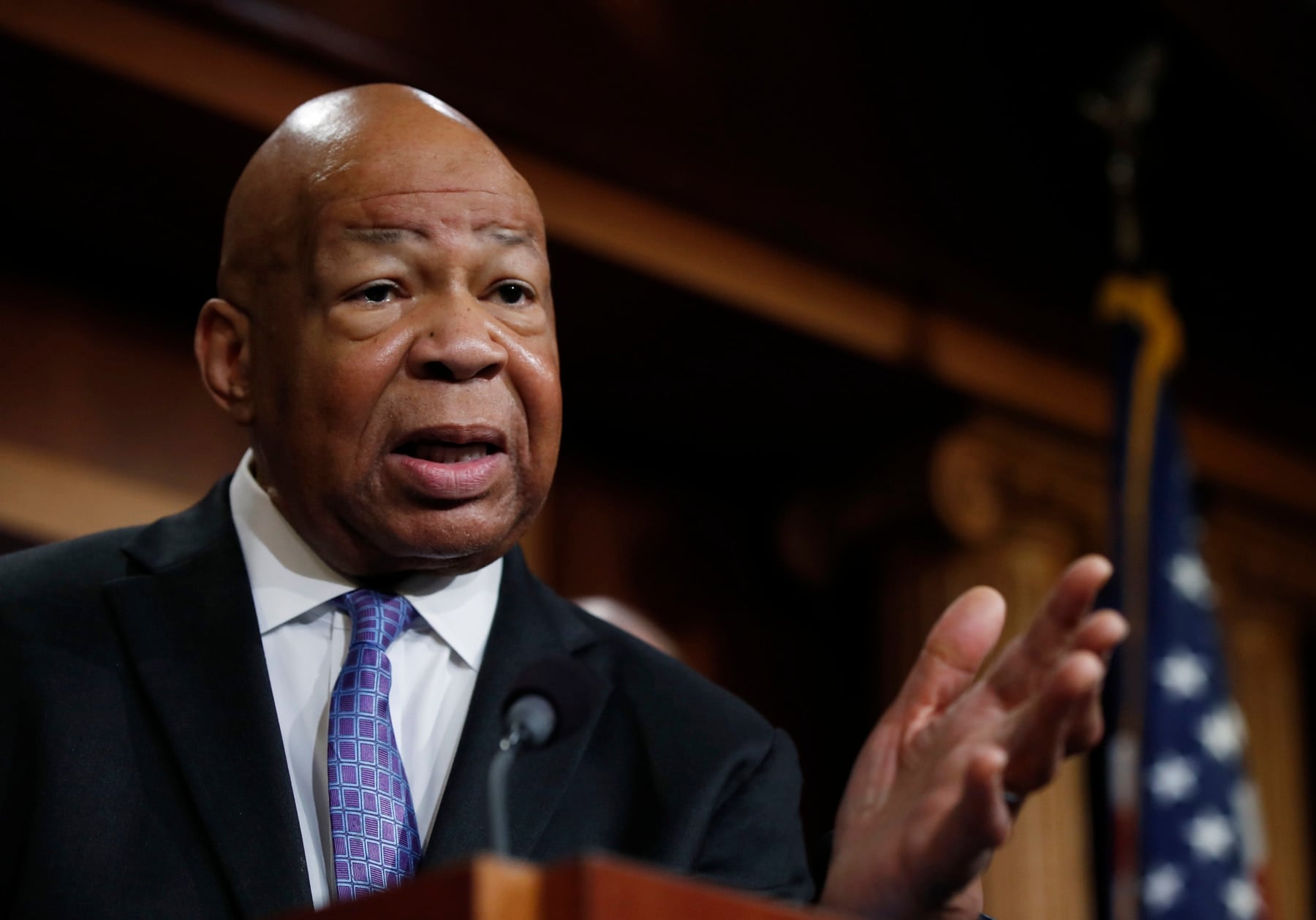WASHINGTON — The investigations into President Donald Trump's ousted National Security Adviser Michael Flynn intensified Thursday as the Pentagon's watchdog joined lawmakers in scrutinizing the legality of payments he accepted from foreign sources including a Russian state-sponsored television network.
Also, new documents released by the ranking Democrat on a House oversight committee showed Flynn was warned by authorities when he retired from the military in 2014 not to take foreign government-sourced money without "advance approval" from the Pentagon.
Flynn, a former Army lieutenant general and Defense Intelligence Agency chief, later accepted tens of thousands of dollars for his work on behalf of foreign interests, including RT, the state-supported Russian television network, and a Turkish-owned company linked to Turkey's government.
The Pentagon's acting inspector general's office confirmed Thursday he has launched an inquiry into whether those payments qualify as coming from foreign governments and whether Flynn properly informed military authorities about them.
Rep. Elijah Cummings, D-Md., who released the documents on Flynn, said during a news conference that Flynn was clearly informed that he needed to get permission to receive foreign payments and there's no evidence he did so.
"The Pentagon's warning to General Flynn was bold, italicized and could not have been clearer," Cummings said.

Rep. Elijah Cummings, D-Md., ranking member on the House Oversight Committee, speaks to reporters during a news conference on Capitol Hill in Washington, Thursday, April 27, 2017. Documents released by lawmakers show President Donald Trump's former national security adviser, Michael Flynn, was warned when he retired from the military in 2014 not to take foreign money without "advance approval" by Pentagon authorities.
Photo Credit: Manuel Balce Ceneta/AP
Both Cummings and Utah Republican Jason Chaffetz, the chairman of the Committee on Oversight and Government Reform, have previously said they planned to ask the Army to rule on whether Flynn properly informed and asked permission for the payments from Russian and Turkish entities.
A key document released Thursday by Cummings showed that Flynn was warned by a Defense Intelligence Agency official in October 2014 that he would need clearance from the Army before he could accept any earnings linked to foreign governments. Flynn was told in the document that the U.S. Constitution's emoluments provision prohibits any monetary payments or gifts "from a foreign government unless congressional consent is first obtained." The letter explained that such "advance approval" would need to come "from the relevant service secretary."
Flynn received at least $33,750 for his appearance in Moscow in 2015 for RT's anniversary celebration, a gala where Flynn sat next to Russian President Vladimir Putin.
Flynn has previously disclosed that he received between $50,000 and $100,000 as part of his personal stake in $530,000 that his company, Flynn Intel Group, received for consulting work performed last year for a Turkish businessman.
Flynn's firm filed as a foreign agent last month with the Justice Department for its consulting work and acknowledged that it may have benefited the government of Turkey. Flynn's client, Inovo BV, is owned by a Turkish businessman who is also a member of a committee overseen by Turkey's finance ministry.
The U.S. House committee's leaders reported earlier this week that they found no evidence that Flynn asked for permission for foreign payments he received or informed the military that he had accepted them. Army spokeswoman Cynthia O. Smith Thursday also said "we have found no records of LTG(R) Flynn requesting permission from the Army for foreign employment."
In comments to the AP, Chaffetz said that Flynn "had an obligation to seek approval to take money from a foreign government. We found no evidence that he did that." Chaffetz, however, did not join Cummings at the Thursday news conference, unlike their bipartisan appearance earlier in the week announcing the results of the committee's inquiry into Flynn's dealings with authorities before and after his foreign earnings.
Chaffetz's office released a letter he sent on Thursday to the Army, asking the service's acting secretary to make a final determination as to whether Flynn violated federal law by accepting the payments, and if so, to start the process of recovering that money.
Chaffetz also asked the Army to say why it hasn't already made a determination as to the legality of Flynn's payments from RT given that they have been widely reported for at least two years. He also wants the Army to disclose any other investigations it's launched since 2010 into similar legal violations.
The committee's inquiry is one of several congressional investigations into Flynn's contacts with foreign officials before and during his brief stint as Trump's top national security aide. Trump fired Flynn for failing to inform senior administration officials about his contacts with Russian officials — contacts that are being examined as part of the wider inquiries into Russian meddling in the 2016 presidential campaign.
"These documents raise grave questions about why General Flynn concealed the payments he received from foreign sources after he was warned explicitly by the Pentagon," Cummings said. "Our next step is to get the documents we are seeking from the White House so we can complete our investigation."
On Thursday, 18 House Democrats on the oversight committee signed a joint letter calling on Chaffetz to do more to pressure the White House to release documents regarding Flynn.
"There is obviously a paper trail that the White House does not want our committee to follow," the Democrats wrote in the letter.
So far, the committee has not received any information on how the Trump White House vetted Flynn, they said.
The White House recently told the committee that documents the lawmakers sought would not be turned over because they contained classified information or were not relevant to the committee's investigation.
Associated Press writers Lolita C. Baldor and Jeff Horwitz contributed to this report.





